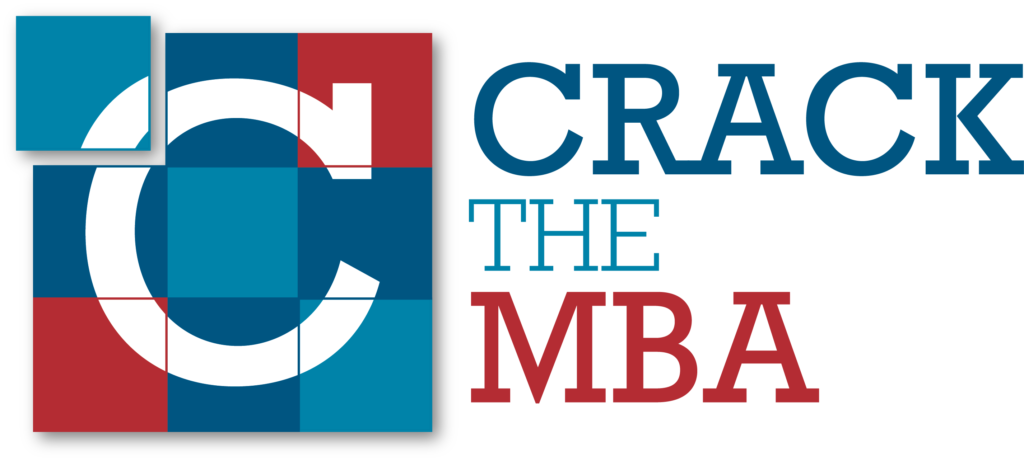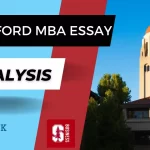Who, When, and How to ask for an MBA Letter of Recommendation?
Every single component of an MBA application is based on your experience and skills except a letter of recommendation or reference. The MBA letter of recommendation is the one and only component that attests to your professional abilities and strengths based on the first-hand experience of a neutral and credible source who worked directly with you.

MBA Letters of Recommendation (LORs) are distinct from essays in which you demonstrate why you belong at a certain business school. Recommendation letters are usually sent by your former employers and should detail why you would be a valuable addition to the business school. Letters of recommendation (LORs) are highly regarded by business schools since they reveal the candidate’s work ethic, motivation, and ability to overcome challenges.
Most business schools put a limit on the number of recommenders that can vouch for your candidacy. This number varies from 1-2 recommenders. Given the limited real estate, it’s important to ask the right people to write the LOR for you. In this article, we’ll look at whom you should ask for LOR when you should ask for LOR, and how to approach a recommender.
Whom should you ask for the MBA Letter of Recommendation?
Business schools prefer recommendations from professionals over recommendations from academics. If an MBA program needs two letters, try to get them both from professional sources. At least one of them should be from your current manager. If this isn’t possible, a former supervisor is a good alternative. If three letters are needed, one from an academic source or from someone who has observed you in a non-professional setting, such as volunteer work, is fine.
Your MBA recommenders should be able to elaborate on your strengths, reinforcing the same aspects that you have already emphasized in your essays. Just like you would, your recommenders should emphasize your professional successes, maturity, interpersonal skills, and leadership abilities. Start establishing relationships with folks who meet the bill, if you don’t have many options.
Stanford GSB asks you to submit two letters of recommendation. The first recommendation is to be from your current direct supervisor (or next best alternative) at work, and the second recommendation from someone else who has supervised you. If you are unable to provide a letter from your current direct supervisor, use your judgment in finding an alternative source for your recommendation — a previous supervisor, an indirect manager, a client, a member of your board of directors, or any other individual who supervises your work.
If you don’t have full-time work experience, you may use a direct supervisor from a summer, part-time, or internship position. Alternatively, you may ask someone who managed you in an extracurricular, research, volunteer, or community activity.
So, make sure that you keep your direct supervisor as the first option for a letter of recommendation. Keep an indirect supervisor as your second option. It can be tricky to ask an indirect supervisor for a letter of recommendation because you have to explain the relationship between yourself and the recommender, and why the recommender is the right person to talk to about your skills. But if it’s done right, this kind of letter can add a lot of value to your MBA application.
How to ask your recommender?
Once you’ve decided on a recommender, it’s a good idea to give them a call or send them an email to catch up and invite them for a real or virtual meeting. You can accomplish three things by doing this.
- Meeting in person or online gives you the chance to convey fully why you want to go to business school. It allows you to take the time to explain why you want to pursue an MBA at this point in your career, and how you’re a good fit for the institutions you’ve selected.
- Finally, you can use this time to remind them of some of your personal strengths and accomplishments, as well as the part they have played in assisting you in achieving them. You can also thank a potential recommender by stating how strong an influence they’ve had on you and how a certain piece of advice they offered has always stuck with you.
- For people you have not engaged with in some time, this can be a great way to re-establish your ties with the potential recommender. If it’s a previous supervisor, use this opportunity to share your latest achievements with them. This is especially crucial for academic references, with whom you might not have spoken to for a long time.
If you want a powerful letter of recommendation, it’s important to provide your recommender with a clear idea of what you’re hoping to accomplish.
There should be no doubt that your LOR must be positive. Having someone who can enthusiastically attest to your strengths and their experience working with you as a reference is invaluable and indispensable.
Is there anything you can do to help your recommender? Yes, here’s how you can help your recommender.
Everyone has a lot on their plate. People like having a plan. Hand it to them. We do not recommend that you write your own letters of recommendation for others to sign, but you should give your recommenders the information they need to create strong letters on your behalf.
Here are a few items that recommenders may find beneficial:
- Include a copy of your resume. If you have made some progress with your applications, it would be ideal to share a polished copy of your resume that you plan to also use for your application submission.
- Your recommenders should be aware of the tone you’re striking in your essay. Even if you haven’t started writing your essay just yet, you can still help them out by giving them an idea of what you want to say. For example, if you are planning to build a story themed around healthcare, you want to share that information with your recommenders so they can bring in relevant experiences to bolster your recommendation.
- Be sure to tell your recommender about any particular projects you oversaw or tasks you completed that you’d like them to comment on. Provide them with specific anecdotes that showcase your qualifications.
- List the schools you’re applying to and explain why you’ve picked them.
- Share deadlines for each business school application and ask your recommenders to submit well in advance to avoid last-minute tech glitches. In case you need a recommendation in a hurry, request it in-person and explain the reason behind the urgency.
- Share clear instructions on how to submit the letter of recommendation. Specify whether your recommender has to upload the letters on the school’s portal or copy/paste them.
- Give your recommender a heads-up on the kind of time commitment this would be.
- Plan for situations such as upcoming holiday season, especially applicable for candidates applying in R2 for early-Jan deadlines.
The goal is to make things easier for the people writing your recommendations, and for yourself.
Do you want expert advice on MBA Letters of Recommendation?
At Crack The MBA, we have helped hundreds of students get into top MBA programs around the world. We would be happy to help you too. Schedule a consultation with us today to learn more about how we can help you get into your dream school.
When should you ask your recommender?
People who give LORs are usually very busy and may also receive such asks from other applicants. Give them at least 8 to 12 weeks to write you a thoughtful and sincere letter of recommendation for business school. Not giving them enough time would affect the quality of your LOR and could also convey your casual attitude towards your application, an impression you wouldn’t want to give before asking the person to write the LOR.
It’s also better to ask for your letter of recommendation in person. Meet up for lunch or coffee (if possible) to talk about why you want to go to graduate business school and what your strengths and weaknesses are.
Recommendation letters are a form of favor. It is courteous and respectful to thank your recommenders in writing at least two weeks before the application deadline. Additionally, the note will serve as a kind reminder that the letter was overdue. Don’t vanish after receiving an MBA acceptance letter; instead, continue to pursue your dreams! It’s courteous to update those who vouched for you on the outcome. Furthermore, it would be ideal to meet with the recommender after you receive an admit, thank them in-person, and also give them a token of appreciation in the form of a thoughtful gift.
Final Thoughts
A letter of recommendation for MBA admissions, if written well and by the right person, will definitely make your application stronger and provide validation for all the claims you have made in your resume, essays, and application form. To make sure your recommendation letter adds value to your application:
- Find a supervisor who has worked with you closely and can attest to your merits to the MBA admissions committee.
- Someone who has directly managed you is preferable to someone who has a fancy title.
- Don’t wait until the last minute to ask for a recommendation letter. Get on it as soon as you can.
- Don’t just wing it; instead, think strategically about how to go about it. Make sure the material you want to be highlighted in your letter of reference for business school is included by coaching your recommender.
Additional Information – What different business schools ask your recommenders?
Many top business Schools have their letters of recommendation structured around GMAC Common LOR. What is the Common LOR?
GMAC has been working with a group of top business schools to make it easier for students to ask for letters of recommendation and send them in. The goal is to make things easier for people who want to get an MBA and for the people who recommend them, as well as to give schools better information.
The Common Letter of Recommendation (LOR) is a recommendation form made so that recommenders and alumni can save time by answering a single set of questions that are the same for everyone. The questions will still be part of each school’s existing application process, so there won’t be many big changes.
Common LOR Sections
Section 1: Personal Information About the Recommender
Section 2: Leadership Assessment Grid
The grid is comprised of 12 competencies and character traits that contribute to successful leadership. The competencies and character traits are grouped into five categories:
- Achievement
- Influence
- People
- Personal Qualities
- Cognitive Abilities
Section 3: Recommendation Questions (Open-ended Questions for Recommenders)
- Please provide a brief description of your interaction with the applicant and, if applicable, the applicant’s role in your organization.
- How does the performance of the applicant compare to that of other well-qualified individuals in similar roles? (e.g., what are the applicant’s principal strengths?)
- Describe the most important piece of constructive feedback you have given the applicant. Please detail the circumstances and the applicant’s response.
- Is there anything else we should know? (Optional)
LOR components
- Recommender Information and relationship with the applicant – Most business schools want to know if your recommender directly supervised you.
- Leadership grids – These parameters can vary, but all business schools want to know your best skills or qualities and where you lag.
- Peer comparison – They want to know from your recommender what makes you better than your peers.
- Short questions – A few business schools also have short questions for your recommender apart from the common questions. For example, Kellogg wants to know the level of engagement between you and the recommender and how you made a significant impact in your organization. Both these questions have to be answered in less than 250 characters.
- Type of submission – Business schools have different ways in which they invite recommenders to submit the LOR contents. For a few, you upload the letter and for others, you have to type in the relevant boxes and submit the LOR.
Do you want expert advice on MBA Letters of Recommendation?
At Crack The MBA, we have helped hundreds of students get into top MBA programs around the world. We would be happy to help you too. Schedule a consultation with us today to learn more about how we can help you get into your dream school.
Business School Specific Information
Chicago Booth
Recommender Information
- Name
- Title, Company Name and Industry
- Relationship with applicant
- Contact information
- Educational background (if you have an MBA from Booth or any affiliation with UChicago or Booth)
Skills assessment
- Ability to adapt to change
- Self-awareness
- Demonstration of empathy for others
- Maturity
- Openness to feedback and constructive criticism
- Interpersonal skills (with colleagues/subordinates)
- Interpersonal skills (with superiors/executives)
- Confidence
- Initiative/Self-Motivation
- Collaboration/Teamwork
- Critical Thinking Skills
- Intellectual Curiosity
- Problem Solving Skills
Peer Comparison
- Based on your professional experience, how does the applicant rate within his or her peer group? (drop-down with values ranging from ‘Below Average’ to ‘Best in Career’)
- Please indicate the reference group for this comparison.
- Overall, I: (drop-down with values ranging from ‘Do not recommend this candidate’ to ‘Enthusiastically recommend this candidate’)
Letter of Recommendation (to be uploaded)
Please provide a written letter of recommendation in support of the applicant addressing the following questions:
- How do the applicant’s performance, potential, background, or personal qualities compare to those of other well-qualified candidates in similar roles? Please provide specific examples.
- Please describe the most important piece of constructive feedback you have given the applicant. Please detail the circumstances and the applicant’s response.
Columbia Business School
The Columbia MBA LOR includes the following:
- Recommender Information
- Name
- Organization, Industry, and Position
- Relationship with applicant
- Contact information
- Educational background (if have an MBA)
- Main questions for recommender
- How do the candidate’s performance, potential, background, or personal qualities compare to those of other well-qualified individuals in similar roles? Please provide specific examples.
- Describe the most important piece of constructive feedback you have given the applicant. Please detail the circumstances and the applicant’s response.
Limit your recommendation to 1000 words. Please submit your recommendation as a PDF or Word document on letterhead, if possible.
Harvard Business School
Part 1: Recommender Information
- Name
- Organization and Position
- Relationship with applicant
- Contact information
- Educational background
Part 2: Relationship Context
Please provide a brief description of your interaction with the applicant and, if applicable, their role in your organization: (300 characters)
Part 3: Candidate Evaluation
Leadership attributes
The MBA Admissions Board would like to learn more about the candidate’s strengths and areas of development. For each attribute, please indicate how you have experienced the candidate. We recognize that all candidates are growing professionally and that some of their attributes may be more developed than others. We appreciate your reflection on relative strengths compared to areas the candidate is actively working to develop. To that end, please mark at least one attribute as “Developing” and no more than three attributes as “Distinctive.”
- Adaptability and resilience
- Awareness of and respect for others
- Curiosity
- Emotional Intelligence
- Initiative
- Integrity
- Interpersonal skills with colleagues and subordinates
- Interpersonal skills with superiors
- Professional maturity
- Self-awareness
- Self-confidence
- Teamwork: engagement and collaboration
- Teamwork: leadership and development of others
Please use this space to comment on the ratings you have assigned, elaborating on relative strengths and opportunities for further development. (Required) (500 characters)
Skill assessment
The MBA Admissions Board is also interested in your evaluation of the candidate’s skills based on the interactions you have had with the candidate.
- Analytical thinking
- Creative problem solving
- Listening skills
- Quantitative skills
- Verbal communication
- Written communication
Please use this space to comment on the ratings you have assigned, elaborating on relative strengths and opportunities for further development. (Required) (500 characters)
Part 4: Open Response Questions
Please respond to the questions below in a single document.
- How do the candidate’s performance, potential, background, or personal qualities compare to those of other well-qualified individuals in similar roles? Please provide specific examples. (300 words)
- Please describe the most important piece of constructive feedback you have given the applicant. Please detail the circumstances and the applicant’s response. (250 words)
- (Optional) Is there anything else we should know? Please be concise.
Kellogg
The Kellogg MBA LOR includes the following:
Recommender information
- Name
- Organization, Industry, and Position
- Relationship with applicant
- Contact information
- Educational background (if MBA from Kellogg)
Short Questions
- Please comment briefly on the context of your interaction with the applicant and his/her role in your organization. (250 characters)
- What has been the candidate’s most significant contribution to your organization? Provide measurable impact if applicable. (250 characters)
Leadership assessment
Listed below you will find a section listing some competencies and character traits that contribute to successful leadership. For each item, please select the response corresponding to the behavior that the candidate most typically exhibits. Your candid, honest appraisal of the candidate will be helpful to the Admissions Committee.
Please assess the candidate on the following skills/qualities.
- Results Orientation
- Strategic Orientation
- Team Leadership
- Influence and Collaboration
- Communicating
- Information Seeking
- Developing Others
- Change Leadership
- Respect for Others
- Trustworthiness
Based on your professional experience, how do you rate this candidate compared to her/his peer group? (drop-down with options ranging from ‘Below Average’ to ‘The best I’ve encountered in my career’)
If needed, please explain any rankings above. (250 characters)
Do you recommend this candidate for Kellogg?
Are you willing to speak with an admissions officer about this candidate?
Main questions for recommenders (file to be uploaded):
1. Kellogg has a diverse student body and values students who are inclusive and encouraging of others with differing perspectives and backgrounds. Please tell us about a time when you witnessed the candidate living these values. (300 words)
2. How does the candidate’s performance compare to those of other well-qualified individuals in similar roles? Please provide specific examples. (300 words)
3. Describe the most important piece of constructive feedback you have given the candidate. Please detail the circumstances and the applicant’s response. (250 words)
4. (Optional) Is there anything else you would like us to know?
MIT Sloan
Recommender Instructions: The mission of the MIT Sloan School of Management is to develop principled, innovative leaders who improve the world and generate ideas that advance management practice. Your recommendation letter will assist the Admissions Committee in selecting a class that will contribute toward this mission. The Admissions Committee may contact you for further information.
Section 1: Recommender Information
- Name
- Organization, Industry, and Position
- Relationship with applicant (including things like when the recommender has had the most frequent contact with the applicant)
- Contact information
- Educational background (including affiliation with MIT or MIT Sloan)
Did you use a translator?
Section 2
In this section, you will find 16 competencies and character traits that contribute to successful leadership. The competencies and character traits are grouped into five categories.
- Achievement
- Initiative
- Results Orientation
- Influence
- Communication, Professional Impression & Poise
- Influence and Collaboration
- People
- Respect for others
- Team leadership
- Developing others
- Personal Qualities
- Trustworthiness / Integrity
- Adaptability/ Resilience
- Self Awareness
- Cognitive
- Problem Solving
- Strategic Orientation
(Optional) Is there anything about your competency ratings on which you’d like to comment?
Based on your professional experience, how would you rate this candidate compared to her/his peer group?
Select one option from the drop-down menu
- Unable to assess
- Below average
- Average
- Very good (well above average)
- Excellent (top 10%)
- Outstanding (top 5%)
- The best encountered in my career
Overall, I:
The recommender has to select one out of the following 4 options:
- Do not recommend this applicant
- Recommend this applicant, with reservations
- Recommend this applicant
- Enthusiastically recommend this applicant
Section 3
To be filled in and not uploaded
Please answer the following questions and provide specific examples where possible.
- Please provide a brief description of your interaction with the applicant and, if applicable, the applicant’s role in our organization. Recommended word count: 50 words
- How does the performance of the applicant compare to that of other well-qualified individuals in similar roles? (E.g. what are the applicant’s principal strengths? recommended word count: 500 words)
- Describe the most important piece of constructive feedback you have given the applicant. Please detail the circumstances and the applicant’s response (Recommended word count: 500 words)
- (Optional) Is there anything else we should know?
Stanford GSB
Recommender Information
- Name
- Organization and Position
- Relationship with applicant
- Contact information
- Educational background
Leadership Assessment
- Initiative
- Results Orientation
- Communication, Professional Impression & Poise
- Influence and Collaboration
- Respect for Others
- Team Leadership
- Developing Others
- Trustworthiness / Integrity
- Adaptability / Resilience
- Self Awareness
- Problem Solving
- Strategic Orientation
A short question: Feel free to comment if you need to clarify the ratings you have assigned. (500 characters)
Summary
Based on your professional experience, how would you rate this candidate compared to her/his peer group?
Select one option from the drop-down menu
- Below Average
- Average
- Very Good (Well above average)
- Excellent (top 10%)
- Outstanding (top 5%)
- The best encountered in my career
Overall, I
The recommender has to select one out of the 3 options
- Do not recommend this candidate to Stanford
- Recommend this candidate to Stanford, with reservations
- Recommend this candidate to Stanford
Reference Questions
The most useful recommendations provide detailed descriptions, candid anecdotes, and specific evidence that highlight the candidate’s behavior, actions, and impact on those around her or him. This kind of information helps distinguish the very best individuals from a pool of many well-qualified candidates. Please write your answers to the following questions in a separate document and upload that document into the online application.
Questions:
- How does the applicant’s performance compare to that of other well-qualified individuals in similar roles? Please provide specific examples. (E.g., what are the applicant’s principal strengths?) – Up to 500 words
- Describe the most important piece of constructive feedback you have given the applicant. Please detail the circumstances and the applicant’s response. – Up to 500 words
- (Optional) Is there anything else we should know?
Important note: While Columbia Business School’s recommendation form advises that recommendations be submitted on letterhead, if possible, Stanford specifically advises not to have graphics or letterhead in the upload. Therefore, as an applicant, it would be in your best interest to advise your recommenders about such key differences to allow them to help you put your best foot forward.
Wharton
The Wharton MBA LOR includes the following:
Recommender Information
- Name
- Title & Employer
- Relationship with applicant
- Contact information
- Educational background (if a Wharton or UPenn alum)
Summary Appraisal
- Please look at this list of personality characteristics and choose up to two traits that you feel best represent the candidate you are recommending to the Wharton MBA
- Program. (TIP – You do not have to choose two, only up to two.)
- Determined, Humble, Disciplined, Engaged, Intellectually Curious, Analytical, Flexible, Persistent, Conscientious, Results Oriented
- Please look at this list of personality characteristics and choose up to two traits that you feel best represent the candidate you are recommending to the Wharton MBA
- Program. (TIP – You do not have to choose two, only up to two.)
- Collaborative, Persuasive, Innovative, Confident, Self-Aware, Professional, Resilient, Energetic, Emotionally Stable, Agreeable
Main questions for recommenders (to be filled in, not uploaded)
- Please provide example(s) that illustrate why you believe this candidate will meaningfully contribute to the Wharton MBA community. (Recommended word count: 300 words, Word limit: 7500 characters)
- Please provide example(s) that illustrate why you believe this candidate will find success throughout their career. (Recommended word count: 300 words, Word limit: 7500 characters)
- (Optional) Is there anything else we should know? (Word limit: 7500 characters)






